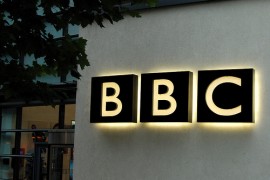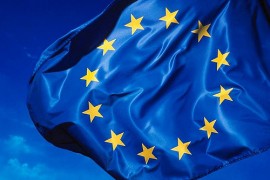At last! MPs have finally confirmed that they want very radical changes in the way the BBC is run, including the decriminalisation and eventual axing of the totally anachronistic – and hated – licence fee.
At the heart of the House of Commons Culture, Media and Sport Committee’s 166-page report is a key recommendation: that the Trustees – the rotten heart of the BBC – should be axed and replaced by a genuinely and rigorously independent body that ensures that the Corporation is run in the interests of audiences.
The current regime thinks their job is to champion the Corporation in its right-on lefty agenda – blatantly evident in everything it does – rather than holding it properly to account over editorial standards and the spending of £4bn of taxpayers’ money a year.
That’s exactly what has happened with Rona Fairhead, the new colourless chairman, who within weeks of her appointment in the autumn was telling MPs on the Culture Committee how wonderful the BBC’s output was. In more recent evidence to the Commons European Scrutiny Committee, she made it crystal clear that – despite massive evidence to the contrary – she believed that everything that was broadcast by the BBC about the EU was balanced, fair and totally within the Trustees’ remit.
Also typical of the sycophancy of the current Trustees is Richard Ayre. He worked at the BBC for almost 30 years, then had a brief spell on a quango after he took a fat BBC early-retirement pension (at only 50). He is now the Trustee in charge of editorial standards. Like so many at the Corporation he is a dyed-in-the-wool lefty and a gay rights champion. His espousal of right-on causes is typified by his role as a former Chair of Article 19, a campaigning human rights body whose agenda includes massive indoctrination over ‘climate change’.
During Ayre’s period in office, the Trust has formally adopted its own aggressive ‘climate change’ agenda after commissioning a highly-biased report on the subject. In effect, BBC coverage on this subject is now always outrageously skewed in favour of climate change activists such as Greenpeace and the World Wildlife Fund.
Recently, Ayre admitted to MPs (in the same hearing as Fairhead) that also during his watch as a Trustee, the Editorial Standards Committee – the final body in dealing with complaints from the public about content – had not upheld a single complaint about the BBC’s EU coverage in its entire existence (since 2007). In fact, only one in 5,000 complaints received by the BBC is upheld by the Trust and every aspect of its complaints regime is massively biased in the BBC’s favour.
Also typical of the BBC Trustees is current deputy chairman, Diana Coyle. She is married to a BBC journalist and is an economist and journalist. In that role she has made no secret of her strongly pro-Labour, and pro EU views.
Another Trustee is Lord Williams of Baglan. Who? Well, like Richard Ayre, his primary career was as a journalist in the BBC World Service, with its heavily pro-overseas aid agenda. In the 1990s, he switched to the UN and worked in the same rights agenda framework inhabited by Ayre’s Article 19. He had posts as information officer in gilded-cage UN offices in New York and Geneva before becoming advisor to Labour ministers Jack Straw and Robin Cook. His career path makes it very clear that he is unlikely to vote Ukip. In his Trustee biography, he boasts sychophantically that he has a ‘lifelong bond’ with the BBC ethos.
Massive evidence of the Trustee’s failings can be seen in their handling of complaints about EU coverage. In order to check ‘breadth of content’ , they commissioned former BBC trainee Stuart Prebble, who subsequently became the editor of Granada Television’s lefty ITV current affairs programme World in Action. Prebble was actually appointed to his role by a BBC Trustee David Liddiment, his former Granada colleague.
The subsequent report was a complete whitewash based on crassly inadequate methodology commissioned from former senior BBC news executives now working at Cardiff University. Prebble also took most note in his conclusions to evidence from BBC news executives, who told him how wonderful their programmes were.
In that context, the Media Committee’s report makes complete sense. What’s needed is a clearing of these Augean stables of lefty rectitude. Public service broadcasting needs in the United Kingdom a new force at its heart that understands that the BBC has to be genuinely independent and held to account.








